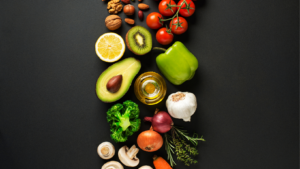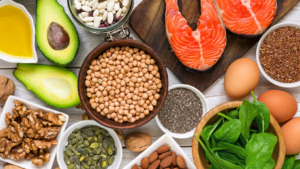Recovering from alcohol dependency is a journey that requires not just mental and emotional resilience but also physical nourishment. Nutrition plays a pivotal role in restoring the body’s balance and repairing the damage caused by prolonged alcohol use. When individuals embark on the path to sobriety, their bodies often face nutrient deficiencies that can hinder recovery.
A well-rounded diet can significantly aid the healing process, boosting energy levels and improving overall well-being. Essential nutrients like vitamins, minerals, and antioxidants help detoxify the liver and support brain health, which are crucial for maintaining sobriety. By focusing on nutrient-rich foods, individuals can enhance their recovery efforts and set the foundation for a healthier lifestyle.
Understanding the connection between nutrition and recovery empowers individuals to make informed choices. As they adopt healthier eating habits, they not only support their physical health but also strengthen their resolve to overcome addiction.
Nutrition For Alcohol Recovery
Alcohol recovery involves a comprehensive healing process that addresses both physical and psychological aspects. Detoxification initiates physical recovery by eliminating toxins from the body, often leading to withdrawal symptoms. During this time, the body experiences various changes as it adapts to functioning without alcohol. Psychological recovery follows, focusing on mental health stabilization and developing coping strategies. Both stages require professional guidance and support systems to ensure success. Nutrition plays a crucial role throughout this journey by replenishing essential nutrients and promoting overall well-being. A balanced diet aids in stabilizing mood, boosting energy, and enhancing the immune system during recovery.
Importance Of Nutrition In Recovery

Nutrition significantly impacts alcohol recovery by replenishing depleted nutrients. Deficiencies in vitamins like B-complex and minerals such as magnesium often occur from excessive alcohol intake. Proper intake of these nutrients aids in detoxifying the liver and repairing damaged tissues. A balanced diet, rich in fruits, vegetables, whole grains, and lean proteins, supports brain function and boosts mental health. Stabilizing blood sugar through regular, nutritious meals reduces cravings and mood swings. Adequate hydration is crucial for optimal body function, promoting toxin elimination. Prioritizing nutrition enhances physical recovery, fosters mental resilience, and supports overall sobriety efforts.
Key Nutrients For Alcohol Recovery

Nutrition plays a crucial role in alcohol recovery by restoring vital nutrients. B-complex vitamins support energy production and nerve function, with thiamine and folate being particularly important. Magnesium and zinc combat deficiencies common in alcohol dependency, enhancing immune support and cellular repair. Omega-3 fatty acids, found in fatty fish, aid cognitive function, while amino acids from lean proteins help repair tissue and balance neurotransmitters. Antioxidants in fruits and vegetables reduce oxidative stress. Fiber from whole grains aids digestion and stabilizes blood sugar levels to alleviate cravings. Prioritizing these nutrients promotes healing and supports sustained recovery.
Dietary Recommendations
Focus on whole foods to nurture recovery. Incorporate vegetables and fruits like spinach and berries for antioxidants. Include lean proteins such as chicken, fish, and legumes to repair tissues and support brain health. Whole grains like brown rice and oats stabilize blood sugar. Essential fats found in avocados and nuts supply omega-3 fatty acids for cognitive function. Stay hydrated with water and herbal teas to aid detoxification. The Mediterranean diet offers a balanced option, emphasizing plant-based foods and healthy fats. Regular meals help maintain energy levels and reduce cravings, creating a solid foundation for sustained alcohol recovery.
Foods To Avoid

While focusing on what to include in a recovery diet is crucial, it’s equally important to know which foods to avoid. Individuals on the path to recovery should steer clear of processed foods high in sugar and unhealthy fats, as these can exacerbate mood swings and cravings. Caffeine and sugary drinks may also hinder recovery by causing blood sugar spikes and crashes, leading to irritability and anxiety. Additionally, it’s wise to limit or avoid foods with high sodium content, which can contribute to dehydration and strain the liver. By making mindful choices about what to exclude from their diet, individuals can better support their body’s healing process and enhance their overall recovery journey.

